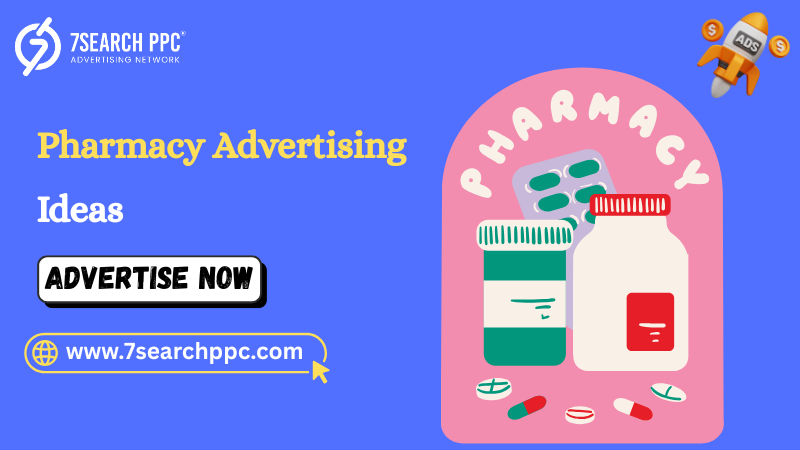The Psychology Behind Successful Pharmacy Advertising Ideas

Pharmacy advertising is not just about placing posters, running digital ads, or handing out flyers. At its core, it is about understanding people. Every decision a customer makes, from choosing a pharmacy to buying a product, is guided by psychology. Knowing how people think, what builds trust, and what motivates action helps small and large pharmacies alike create effective campaigns.

When we talk about pharmacy advertising ideas, we are really talking about aligning customer psychology with communication. The best ads are not always the loudest or the flashiest; they are the ones that quietly connect with the emotions, values, and practical needs of the audience.
The Pain Point: Why Traditional Ads Often Fail
A common mistake is thinking that offering discounts or listing products is enough to attract customers. But in reality, people are driven by more than price. They want reassurance, convenience, and confidence that they are making the right choice for their health.
Traditional ads often fail because they overlook these needs. An advertisement for a pharmacy that simply states "lowest prices" may not resonate with someone who values trust or personal care. This is where psychology steps in, shaping messages that people notice and remember.
Personal Insight: What I Learned From Real Experiences
Consider a pharmacy that ran a digital ad campaign promoting discounted vitamins. The clicks came in, but the actual sales were low. After revisiting the message, the pharmacy shifted its focus to highlight "trusted health support for your family." Sales improved, even though the offer itself did not change.
The difference was psychological: people felt a stronger connection to the message that emphasized family health rather than just price.
The Psychology of Pharmacy Ads
The Power of Trust
Trust is one of the strongest psychological drivers in healthcare. Customers want to believe that the pharmacy they choose cares for their well-being. Using images of professional staff, clear language, and emphasizing certifications builds that trust.
Emotional Connection Over Transaction
People remember feelings more than facts. A campaign that shows relief, safety, or care resonates better than one that lists only services. Smart pharmacy ads tap into this emotional layer.
Authority and Expertise
Customers look for expertise when it comes to their health. Content that educates, such as blog posts or Q&A sessions, signals authority. This is closely linked to healthcare advertising where credibility is as important as visibility.
The Psychology of Scarcity
People act faster when they feel they might miss out. A campaign that says "limited free flu shots this week" works better than "flu shots available." Scarcity creates urgency without pressuring customers.
Social Proof and Community Influence
Humans are wired to trust what others recommend. Testimonials, community stories, or even photos from local health events act as social proof. This subtle cue influences people to choose one pharmacy over another.
How to Advertise Pharmacy Services Effectively
Keep It Simple
Complicated messages confuse customers. Ads that use short, clear phrases like "Quick refills, trusted advice" connect better than long-winded explanations.
Highlight Convenience
Convenience is a psychological motivator. Free delivery, easy refills, and reminder alerts address a core need for simplicity in busy lives.
Personalization Works
A marketing idea for pharmacy that involves personalized SMS or email reminders creates a stronger bond. Customers feel valued when they see their name and relevant information.
Visual Psychology
Colors, fonts, and images matter. Blue conveys trust, green signals health, and smiling faces build connection. An advertisement for a pharmacy that uses warm visuals often performs better than one with generic stock photos.
Anchoring Through Education
Educational content builds authority. Blogs, FAQs, or health tips on social media remind people of your expertise. Many of the best ideas for pharmacy advertising campaigns are rooted in simple educational value that creates long-term customer loyalty.
A Soft Solution Hint: Start Small and Test
Pharmacy owners do not need to run large-scale campaigns right away. The smart move is to test one or two approaches, measure results, and then scale up. You can easily launch a test campaign to explore what works best for your audience without heavy risk.
Why Psychology-Driven Ads Win
Advertising that speaks to psychology feels natural and personal. It avoids the hard sell and instead builds a relationship. Small pharmacies can use this to their advantage because they already have community trust. By leaning into these insights, ads become more than promotions; they become reminders of care, reliability, and human connection.
Key Takeaways for Small Business Owners
- Trust and emotion are stronger than price alone.
- Simplicity wins over complexity.
- Scarcity and social proof influence decisions.
- Education positions your pharmacy as an expert.
- Testing and adapting are essential for growth.
Conclusion: The Future of Psychology in Pharmacy Advertising
Pharmacy advertising ideas built on psychology are not trends; they are timeless strategies. People will always make decisions based on trust, emotion, and social cues. Pharmacies that understand this will remain relevant, no matter how the industry evolves. For small business owners, the path forward is clear: blend psychology with practical advertising, and growth will follow naturally.


